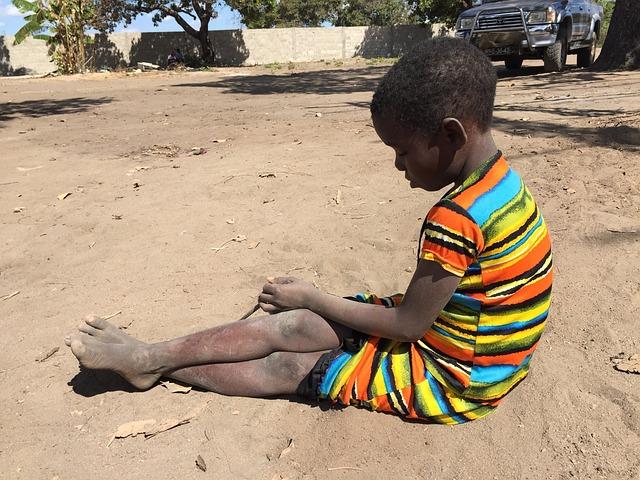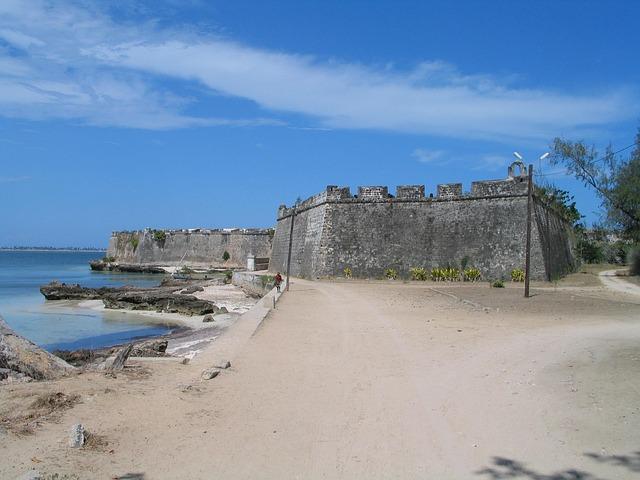Introduction
Mozambique, a nation once celebrated for its breathtaking landscapes and rich cultural heritage, is now grappling with a surge in political violence that has transformed its political landscape into a battleground. Over recent years, the country has witnessed an alarming escalation of hostility, marked by brutal clashes between government forces and various armed factions. This unsettling trend raises critical questions about the underlying causes of this violence and its implications for Mozambique’s stability and governance. In this article, we delve into the complex interplay of historical grievances, economic disparities, and regional influences that have propelled Mozambique’s politics into a deadly spiral, examining how these factors have not only fueled conflict but also jeopardized the future of a nation striving for peace and development.
Understanding the Historical Context of Mozambique’s Political Violence
The political landscape of Mozambique has been shaped by a convoluted history that includes colonial rule, civil war, and post-independence power struggles. After gaining independence from Portugal in 1975, the country was quickly engulfed in a brutal civil war between the ruling FRELIMO party and the opposition RENAMO group. The conflict,wich lasted until 1992,left deep scars on the national psyche,destroying infrastructure and leading to important loss of life. The aftermath of the civil war did not bring about lasting peace; instead, it set the stage for subsequent political violence rooted in ethnic tensions, economic disparities, and political exclusion. These underlying issues have continually resurfaced, fueling discontent and violence against government forces and perceived political rivals.
Sence the end of the civil war, mozambique has struggled with persistent corruption and a lack of inclusive governance. Policies often favor a privileged elite, which exacerbates socio-economic inequalities across the nation. This disenfranchisement has led to increased tensions, particularly in regions largely inhabited by RENAMO supporters. Recently, the resurgence of violence in the northern provinces has highlighted the fragile state of peace, igniting fears of a potential return to widespread conflict.such a tense atmosphere is perpetuated by an ongoing struggle for power, garnering both local and international attention, as the country grapples with its historical baggage and the quest for political stability. The following table summarizes key events that have marked Mozambique’s tumultuous political history:
| Year | Event |
|---|---|
| 1975 | Independence from Portugal |
| 1977 | Civil war begins |
| 1992 | Civil war officially ends |
| 2014 | Renewed clashes between FRELIMO and RENAMO |
| 2020 | Escalation of violence in northern provinces |

The Role of Factionalism in Escalating Conflict
Factionalism in Mozambique has become a multifaceted issue,substantially exacerbating political tensions and contributing to the violence plaguing the nation. the polarization within political parties frequently enough leads to an “us versus them” mentality, causing citizens to rally behind their factions rather than pursuing a collective national interest. This division manifests in various ways,including:
- Violent clashes between rival party supporters during elections.
- Widespread distrust of government institutions that are perceived as biased.
- Suppression of dissent, as factions seek to eliminate opposing views.
The repercussions of such factional disputes are profound,contributing to instability and a cycle of vengeance. Local communities frequently enough become battlegrounds where rivalries take shape, and political affiliations dictate everyday interactions. Moreover, the involvement of external actors—both local and international—can complicate these conflicts further, as they may exploit factional divisions for their gain. This environment fosters the emergence of non-state actors and further entrenches the notion that violence is an acceptable tool for political expression.

Economic Factors Contributing to Political Instability
The complex interplay of economic issues has played a significant role in fueling political unrest in Mozambique. A combination of high unemployment rates, widespread poverty, and corruption has contributed to a growing sense of disenfranchisement among the population. Specifically, the youth demographic, many of whom face bleak job prospects, has been particularly affected. This lack of economic possibility has often translated into frustration and anger, creating fertile ground for political agitation. Additionally, disparities in wealth distribution have exacerbated societal divisions, leading to conflicts that undermine the stability of the political landscape.
Moreover, Mozambique’s struggle with external debt and reliance on foreign investment has created further vulnerabilities. Economic mismanagement, coupled with the extraction of natural resources, has sparked accusations of exploitation and environmental degradation, intensifying conflicts between communities and the government. This situation is further intricate by global economic fluctuations, which impact key sectors such as agriculture and tourism. As a result,a cycle of economic hardship and political instability persists,with ordinary citizens bearing the brunt of these challenges while political elites remain insulated from the repercussions.

International Influence and Intervention in Mozambique’s Crisis
The ongoing crisis in Mozambique has drawn significant international attention,as various global powers and organizations respond to the unfolding humanitarian emergency and political turmoil. Key players in this intervention include:
- United Nations (UN): Engaging in diplomatic efforts while providing humanitarian aid.
- African Union (AU): Facilitating peace agreements and promoting regional stability.
- Non-Governmental Organizations (NGOs): Delivering critical relief services to affected populations.
- Foreign Governments: Offering financial assistance and military support to quell violence.
The complexities of Mozambique’s situation are exacerbated by its geopolitical context. Neighboring countries and international entities frequently enough have their own interests in the region, leading to a patchwork of interventions. Challenges include:
| Challenge | Impact |
|---|---|
| Political Fragmentation | Hinders coherent efforts for stabilization. |
| resource Allocation | Competes with local needs for aid distribution. |
| Security Concerns | Impedes the safe delivery of humanitarian assistance. |

Roadmap to Peace: Recommendations for Sustainable solutions
To foster a more peaceful and stable political environment in Mozambique, it is imperative to focus on inclusive governance. This involves engaging marginalized communities and ensuring diverse depiction within political institutions. Key recommendations include:
- Improved transparency in government operations.
- Establishment of platforms for dialog between opposing political factions.
- Promotion of civic education to empower citizens in their democratic rights.
Moreover,addressing the underlying socio-economic grievances that fuel unrest is crucial. Investing in community development initiatives coudl serve as a foundation for broader reconciliation efforts. Specific strategies might include:
- Expanding access to basic services such as healthcare and education.
- Creating sustainable economic opportunities, especially in conflict-prone areas.
- Encouraging collaborative projects that unite different ethnic and political groups over common goals.

The Need for a Strengthened Civil Society in Governance
The role of a robust civil society in governance has never been more critical, particularly in contexts like Mozambique, where political violence and instability have escalated. A strengthened civil society can serve as a key mechanism for fostering accountability, encouraging transparency, and ensuring that citizens have a voice in the political process. By promoting dialogue and civic engagement,organizations within civil society can help to bridge the growing divide between the government and the populace,addressing grievances that often lead to unrest and violence.
moreover, empowering local communities through a strengthened civil society allows for a diverse range of perspectives and solutions to emerge. This inclusivity can enhance social cohesion and mitigate the risks associated with political extremism. Key areas of focus for civil society might include:
- Education and Awareness: Informing citizens of their rights and promoting political literacy.
- Advocacy: Lobbying for policies that protect human rights and public interests.
- Conflict Resolution: Developing local mechanisms for mediation and dialogue.
Table 1 below illustrates the potential impacts of a strengthened civil society on governance:
| Impact Area | Description | Expected Outcome |
|---|---|---|
| Accountability | Monitoring government actions and policies. | Increased trust in institutions. |
| Political Engagement | Encouraging voter participation and civic activism. | More representative governance. |
| Social Justice | Addressing inequalities and advocating for marginalized groups. | Enhanced social stability. |
Closing Remarks
the escalating violence and political turmoil in Mozambique underscore a complex interplay of historical grievances, socio-economic challenges, and rising discontent among marginalized communities. The roots of this deadly political landscape can be traced back to decades of conflict, corruption, and the struggle for power among entrenched elites. As political factions vie for control, the repercussions are felt by ordinary citizens, who bear the brunt of instability and fear. moving forward, it is indeed crucial for both national and international stakeholders to address the underlying issues that fuel this volatility. only through constructive dialogue, genuine political reform, and a commitment to social justice can Mozambique hope to pave a path towards lasting peace and stability. The world watches closely, as the implications of these developments extend beyond Mozambique’s borders, highlighting the need for a concerted effort to promote democratic governance and human rights in regions grappling with similar challenges.







